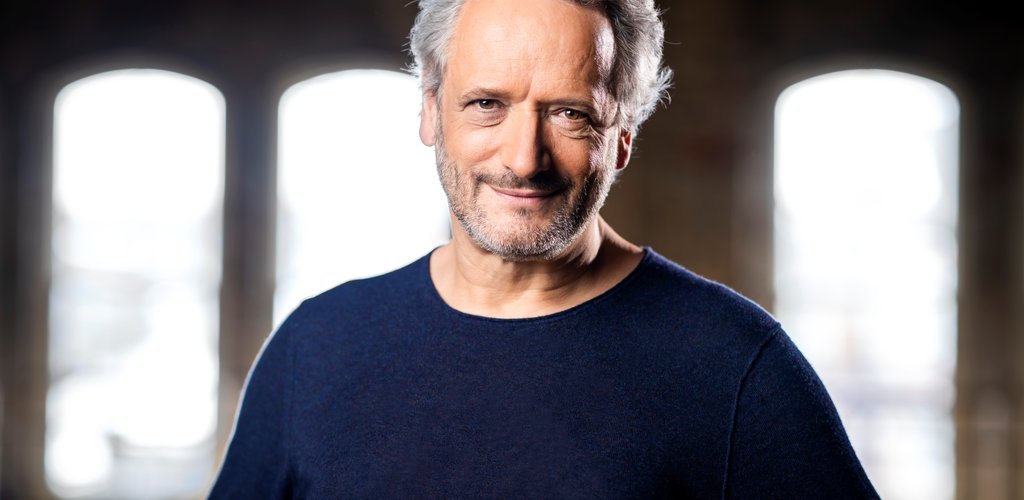We are preparing with a full French program between 10 and 12 in Müpa Budapest. The concert will be conducted by Louis Langrée, the Music Director of the Cincinnati Symphony Orchestra and that of the Mostly Mozart Festival. We talked to him about the differences between French and German music, Ravel’s special piano concerto written for left hand and his relationship with the BFO.
When we last met, the Budapest Festival Orchestra performed The Marriage of Figaro directed by Iván Fischer at the Rose Theater in New York. You were the Artistic Director of the theater at that time. I remember well that in an interview you spoke in superlatives about the BFO. Do you remember that?
Louis Langrée: Yes, I remember very well, Figaro was an excellent production, it was a great success, the New York audiences loved it and the BFO has been spoken of in superlatives ever since.
You will meet the orchestra again soon, this time in Budapest where you are having three concerts together in February. As far as I know, this is not the first time you conduct them.
L. L.: Yes, this will probably be my third appearance in Budapest, Iván Fischer has invited me before two or three times and I have been delighted every time. I remember well, for example, when I conducted the BFO at the Italian Cultural Institute in Budapest, in a beautiful old building in the city center. We had a great success, and it was a real pleasure to work with them. I can recall that Schumann's Piano Concerto in A minor and Brahms' 3rd Symphony were on the program at the time, both of which are very close to my heart.
This time the theme of the concert in Budapest will be French music. How do you feel about the music of your home country? What is special about French music?
L. L.: To answer this question, I will first try to explain the difference between the German and French vision of music. The Germans refer to music as "heilige Kunst", or "sacred art". For the French, almost all the arts are considered "sacred". Painting, fiction, prose and poetry, or sculpture are as highly valued as music. This is not to say, of course, that we do not have excellent French composers. It rather means that French composers are often inspired by a vision. A poem, a painting, a moving story, or a ballet choreography, a dance, etc. Think of Ravel's La Valse, or Berlioz's Symphonie Fantastique, Debussy's La Mer, etc. The titles of French music also indicate that they were almost always written on a specific theme. So there is no 2nd or 3rd symphony, no such title is given.
A good example for this is The Tales of Mother Goose, a beautiful piece by Ravel, which will be performed at the forthcoming concerts.
L. L.: That's right. Indeed, Ma Mère l'Oye is an excellent example of how for French composers music is the language in which they can best tell a story. It is the same with Camille Saint-Saëns' symphony, although the emphasis here is not necessarily on the story, but on the fact that it is a unique piece of music written for organ. This is a special story because the organ is primarily seen in the church, where it is used to perform sacred music. Saint-Saëns did not, however, intend this symphony as church music, but as a secular piece of music to be performed in the concert hall.
As far as I know, he dedicated this work to the memory of Franz Liszt.
L. L.: That's exactly right. Saint-Saëns and Liszt were good friends, and Liszt inspired him to write musical poems in Weimar. And he claimed that Saint-Saëns was the best organist in the world. The organ symphony was written in the year of Liszt's death, clearly dedicated to him.
I would like to return to Ravel. The Piano Concerto, which will be played by the distinguished pianist Jean-Efflam Bavouzet, is a piece written for the left hand. Why left hand?
L. L.: Ravel was asked to write the concerto by Austrian-born American pianist Paul Wittgenstein, who lost his right arm in the First World War. It is a very depressive piece, full of hallucinatory elements and warlike influences. In contrast to the Concerto in G major, which is serene and sunny, full of vivacity and humor. This piano concerto was written after Ravel returned from the United States, where he had been greatly influenced by jazz music. He spent all his evenings in jazz pubs and even met and became friends with Gershwin. That is why there are so many jazz elements in this piano work. And I am sure that Jean-Efflam Bavouzet will perform it beautifully. Especially since he is playing it with the BFO. This orchestra plays so beautifully that I can't wait to work with them! Covid has made life very difficult for them as well, as it has for most orchestras, not to mention the current difficulties, the economic crisis and so on. But now they might finally be able to travel a lot again and be seen in concert halls all over the world!

